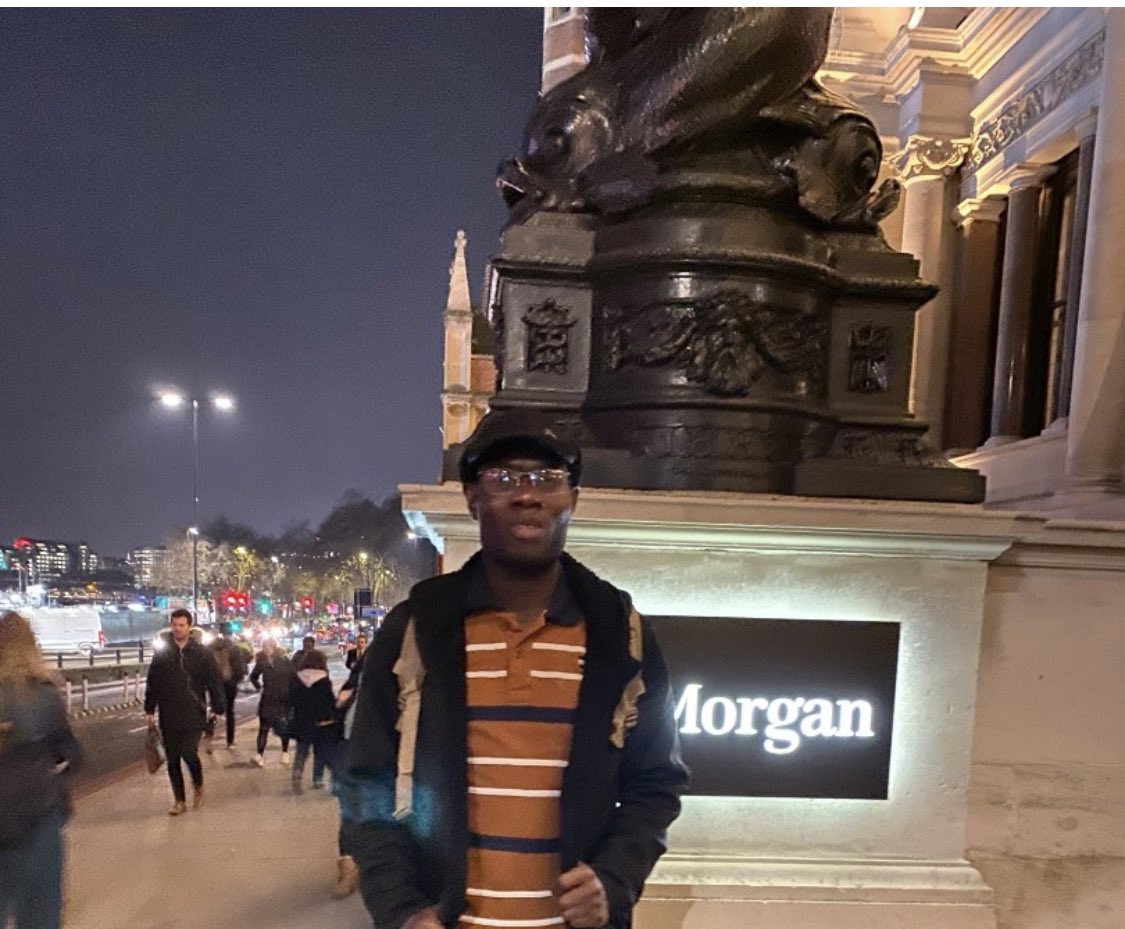1/ Head to Head: Investment Banking vs Management Consulting
In this edition of Head to Head, we take a look at two of the most lucrative careers in the developed markets
Examples of IBs: Goldman Sachs, JP Morgan, Morgan Stanley, Credit Suisse
Ex of MC: McKinsey, Bain, BCG
In this edition of Head to Head, we take a look at two of the most lucrative careers in the developed markets
Examples of IBs: Goldman Sachs, JP Morgan, Morgan Stanley, Credit Suisse
Ex of MC: McKinsey, Bain, BCG
2/ Rather than reinvent the wheel in doing this, I refer to a comparison done by Babajide Adebiyi and published on LinkedIn and JarusHub in 2015. Jide, a year my senior in Ife, has experience in both IB and MC so comes recommended.
Here we go:
Here we go:
3/ IB and MC are like Antigua and the Grenadines: both attract the elite (or at “insecure, deeply left-brain, hyper-intellectual, OCD over-achievers,” in the words of one ex-McKinsey director). If you want to get in you’ll need a sack stuffed with academic achievements and
4/ accolades and a résumé filled with the right sorts of extracurricular activities. And as both investment banker and strategy consultant you’ll be paid well, will operate at the ‘highest levels’ and will work considerably more hours than your friends in other industries.
5/ This is not to say that IB and MC are equivalent careers though. Like Antigua and the Grenadines, they have their differences. And those differences are fairly substantial. If you’re toying with a career in either of them, here’s how to decide which is best for you.
6/ A. PAY
The London Business School sends around 32% of its MBA graduates into consulting and around 28% of its MBA graduates into finance. Helpfully, it records just how much its MBAs earn in those sectors.
The London Business School sends around 32% of its MBA graduates into consulting and around 28% of its MBA graduates into finance. Helpfully, it records just how much its MBAs earn in those sectors.
7/ Guess what? Finance pays more – especially when it comes to the year-end bonus.
However, one ex-McKinsey consultant who now works in investment banking says that if you play a long game in consulting, you’re likely to come out on top of the bankers.
However, one ex-McKinsey consultant who now works in investment banking says that if you play a long game in consulting, you’re likely to come out on top of the bankers.
8/ Sure – in the first 10 yrs of your MC career, he says you’d almost certainly earn more as an IB. “But once you reach MD-level in an investment bank, compensation starts to plateau”. In IB, you can be subject to volatility, both from the market and personal performance
9/ Meanwhile, consultants are on a consistent trend upwards.” While IB pay is plateauing, he says compensation at places like McKinsey only really kicks in at the senior partner level: “Take median compensation 15-20 yr veterans,
10/ and I bet consultants at McKinsey or BCG would come out on top of ibankers.” This may be true: senior partners in management consulting firms earn $1m+.
VERDICT: Investment Banking pays more, especially in the short term
VERDICT: Investment Banking pays more, especially in the short term
11. JOB SECURITY
Your chances of having a 15-20 year career in consulting look a lot higher than your chances of having a 15-20 year career in banking. Take McKinsey & Co. Between 1994 and 2001, it went from 3,300 consultants globally to 7,700.
Your chances of having a 15-20 year career in consulting look a lot higher than your chances of having a 15-20 year career in banking. Take McKinsey & Co. Between 1994 and 2001, it went from 3,300 consultants globally to 7,700.
12/ As of Dec 2014, it had 19k staff globally, or which around 9k were consultants. In other words, headcount in consulting just seems to rise and rise. While firms like McKinsey and BCG are quick to advocate cost cutting in other industries, their own staff seem fairly secure
13/ Investment banking headcount has a tendency to oscillate wildly and is on a long term downwards trajectory in major financial cities. However, guess who helps banks deal with the cost and regulatory pressures that make them cut people?
That’s right, consultants.
That’s right, consultants.
14/ Even when ibanking jobs are being cut, consultants still have plenty to get on with. Banking therefore looks like the more risky career option – You might get paid more, but it might not last.
VERDICT: You’re less likely to lose your job in consulting
VERDICT: You’re less likely to lose your job in consulting
15/ HOURS OF WORK
The hrs are longer in IB, but in MC you’ll often be away from home during the week
The hrs you work in IB will depend on the area you go into. If you go into sales/trading you can expect very early mornings but clearly defined ends to your day as markets close
The hrs are longer in IB, but in MC you’ll often be away from home during the week
The hrs you work in IB will depend on the area you go into. If you go into sales/trading you can expect very early mornings but clearly defined ends to your day as markets close
16/ If you go into IBD (M&A or capital markets), the hours are much more protean: 100 hour working weeks are not unheard of, and non-investment banking friends tend to fade away as weekends and holidays are consumed by the demands of the job.
17/ The hours are tough in consulting too. Don’t forget that if you work as a management consultant you can spend your weeks ‘on the road’.
VERDICT: The hours are longer in investment banking, but in management/strategy consulting you’ll often be away from home during the week
VERDICT: The hours are longer in investment banking, but in management/strategy consulting you’ll often be away from home during the week
18/ WORK-LIFE BALANCE
The big downer about MC is the lifestyle. If you work in IB you’ll commute in & out of your office on Wall Street, in New Jersey, or in the City of London every day. Yes, you might have to do a lot of travelling if you’re in a senior client-facing position
The big downer about MC is the lifestyle. If you work in IB you’ll commute in & out of your office on Wall Street, in New Jersey, or in the City of London every day. Yes, you might have to do a lot of travelling if you’re in a senior client-facing position
19/ but if you’re a junior M&A ibanker or a trader you’ll mostly be glued to your screen at the mother-ship. By comparison, if you work in MC the travel is immediate. And it’s relentless.
The ‘McKinsey Client Model’ involves, ‘Monday to Thursday at the client site
The ‘McKinsey Client Model’ involves, ‘Monday to Thursday at the client site
20/ and Fridays in your home office,” according to one McKinsey employee. That client office could be nearby, or it could be hundreds of miles away. If it’s hundreds of miles away, you’ll spend your weeknights in a faceless hotel.
21/ “The travel is a killer – you’re on the road non-stop unless you get a plush home city assignment,” says the ex-McKinsey consultant who now works in investment banking.
VERDICT: The consulting lifestyle can be a turn-off
VERDICT: The consulting lifestyle can be a turn-off
22/ JOB CONTENT
How about the work itself? Junior ibankers in IBD spend their lives creating financial models in Excel and pitch books in Powerpoint. MC guys, meanwhile, spend their time creating diagrammatic models and Powerpoint presentations.
How about the work itself? Junior ibankers in IBD spend their lives creating financial models in Excel and pitch books in Powerpoint. MC guys, meanwhile, spend their time creating diagrammatic models and Powerpoint presentations.
23/ The key difference is therefore financial modelling in particular and finance in general. Junior ibankers devote their time to studying the value of a company and its capital structure; junior consultants think about the strategy of a company and its organizational structure
24/ In theory, life in MC shd be more fulfilling as they get to implement the recommendatns; but most get frustrated with limited opportunities to put their ideas into practice
VERDICT: MC is all about Powerpoints & presentations, IB is all about Excel modelling and pitch books
VERDICT: MC is all about Powerpoints & presentations, IB is all about Excel modelling and pitch books
25/ POST CAREER OPPORTUNITIES
What happens when you decide you don’t want to work in IB or MC any more? If you work in consulting, you can always go off and become a senior executive in the sector you’ve been consulting in.
To be continued
What happens when you decide you don’t want to work in IB or MC any more? If you work in consulting, you can always go off and become a senior executive in the sector you’ve been consulting in.
To be continued
Continued
26/ McKinsey as of 2014 said 450 of its former staff are currently running ‘billion dollar organizations’ around the world, eg Tidjane Thiam, exCEO of Credit Suisse and James Gorman at Morgan Stanley. By comparison, swapping out of ibanking can be more of a challenge.
26/ McKinsey as of 2014 said 450 of its former staff are currently running ‘billion dollar organizations’ around the world, eg Tidjane Thiam, exCEO of Credit Suisse and James Gorman at Morgan Stanley. By comparison, swapping out of ibanking can be more of a challenge.
27/ The best people from IB go into private equity or event driven hedge funds. Sometimes they go into corporates to work for ‘in-house deal teams.’ But there are often more people who want to swap out of banking than there are places for them.
28/ Interestingly, it seems very easy to go from IB into MC and less easy to move in the opposite direction. Publicly available profiles suggest that 144 people at Goldman Sachs previously worked for McKinsey, but that 285 people at McKinsey previously worked for Goldman Sachs.
29/ Similarly, 63 people at GS used to work for Bain, but 96 at Bain used to work for GS
If you’re smart, you may start in IB, then move into MC as your career progresses. That way you’ll be able to sample both worlds
VERD.: Easier to go onto big things when you’ve worked in MC
If you’re smart, you may start in IB, then move into MC as your career progresses. That way you’ll be able to sample both worlds
VERD.: Easier to go onto big things when you’ve worked in MC

 Read on Twitter
Read on Twitter



